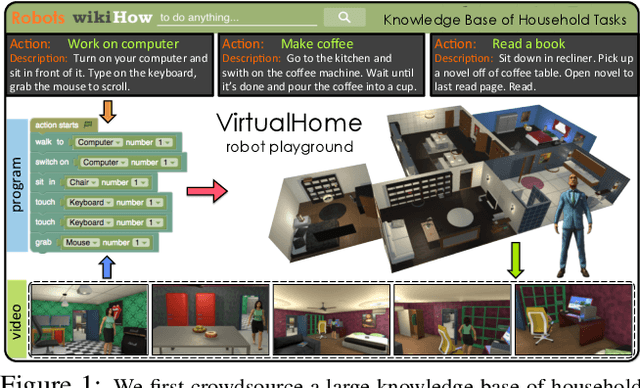VirtualHome: Simulating Household Activities via Programs
Paper and Code
Jun 19, 2018



In this paper, we are interested in modeling complex activities that occur in a typical household. We propose to use programs, i.e., sequences of atomic actions and interactions, as a high level representation of complex tasks. Programs are interesting because they provide a non-ambiguous representation of a task, and allow agents to execute them. However, nowadays, there is no database providing this type of information. Towards this goal, we first crowd-source programs for a variety of activities that happen in people's homes, via a game-like interface used for teaching kids how to code. Using the collected dataset, we show how we can learn to extract programs directly from natural language descriptions or from videos. We then implement the most common atomic (inter)actions in the Unity3D game engine, and use our programs to "drive" an artificial agent to execute tasks in a simulated household environment. Our VirtualHome simulator allows us to create a large activity video dataset with rich ground-truth, enabling training and testing of video understanding models. We further showcase examples of our agent performing tasks in our VirtualHome based on language descriptions.
 Add to Chrome
Add to Chrome Add to Firefox
Add to Firefox Add to Edge
Add to Edge